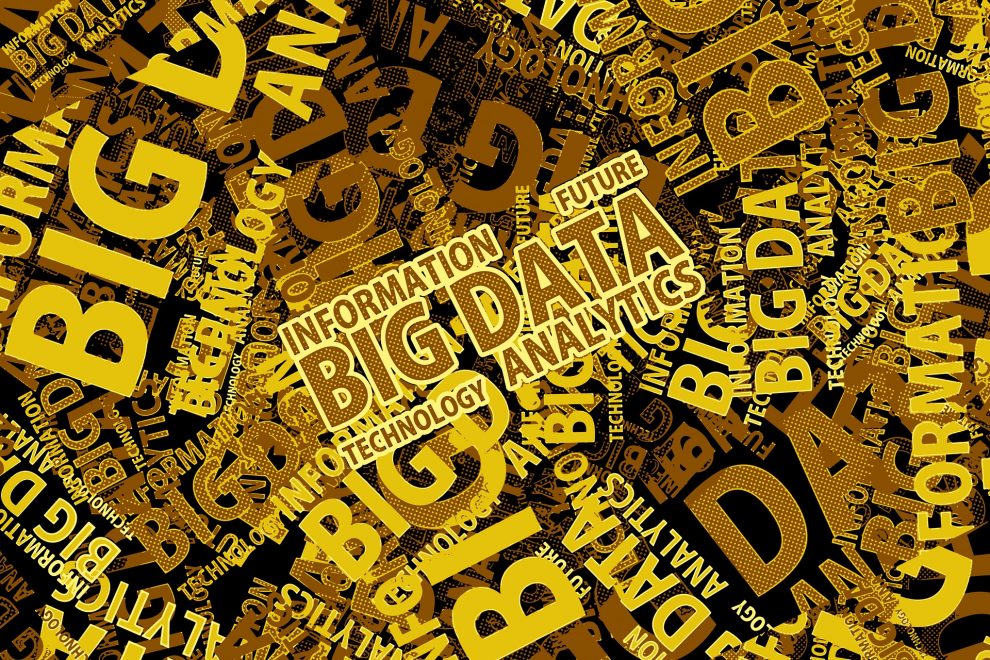The coronavirus Pandemic suddenly took over the world, and nearly everything came to a standstill. Businesses had to shut down, and people went into social isolation to keep away from the risks of infection. With the number of active cases still on the rise in some parts of the globe, the novel coronavirus presents a potent public health challenge.
Big Data is a saviour today
The Pandemic outbreak has resulted in travel restrictions, making the collection of data a highly challenging task for research communities, especially in the healthcare sector. However, Big Data has proved to be a savior when it comes to collecting information in the Pandemic era. It has been instrumental in contributing to the medical community in the following ways-
-
Health monitoring
Advances in big data analytics technologyare radically changing the waymedical specialists monitor their patients’ vitals.Ultra-modern medical devices allow these experts to assess these individuals’ blood pressure, pulse rate, body temperature, and glucose levels accurately. These include oximeters, ultra-modern magnetic resonance imaging scanners, glucose monitors, diagnostic x-ray machines, andwireless brainwave sensors.
The specialists can now scrutinize the medical devices collected to get anidea of their patient’s overall health. They can then decide whether to immediately admit these patients to a hospital or continue treating them in their homes.
Even during hospice, medical experts might insist the patients wear special smart healthcare gadgets which operate using big data technology. These could be in the form of Fitbit health trackers, Oura rings, 3D fitness trackers, or Apple watches.
The smart devices enable medical specialists to carefully monitor their patients’ sleep patterns, eating habits, and exercise routines. The specialists can even take necessary steps if the patients’ condition suddenly deteriorates.
-
Cost savings
The optimal use of big data analytics enables hospitals of all sizes to reduce their operating costs significantly. However, many of these medical institutions might have an inadequate number of doctor’s and infrastructure to meet their patients’ demands.
Carefully examining the results of a suitable predictive analysis provides the top managerial personnel of the institutions with many solutions. For example, they can easily resolve the contentious issue of staff and bed allocations to the patients in their hospitals.
The managers have to scrutinize the patient admission rates to determine which departmentsto assign the doctors, nurses, and paramedics. This ensures the patients get the necessary medical attention according to the level of care they require. In the process, the hospitals can effectively utilize the funds the government and other benefactors provide. This results in a considerable reduction in the hospital’s total operating costs to yield higher returns on investments.
Even insurance companies operating in the healthcare sector can save money on their policyholders’claim disbursements. This is because the enterprises only have to reimburse those policyholders who need immediate hospital treatment.
-
Assessing and assisting patients falling in high-risk categories
Experts from the esteemed name in database consulting, administration, and management, RemoteDBA, state that digitalizing hospital records provide medical institutions of all sizes with a reliable real-time database to access whenever needed. Proper use of big data analysis helps accomplish this objective with a short timeframe without disrupting normal operations.
The medical directors of the hospitals can then access the information from this repository at their own time and convenience. The data will give them an insight into the level of care patients who frequently visiting their hospital’s needs. The medical specialists can then identify and categorize those patientshaving chronic medical conditions who require immediate attention.
These medical specialists can then devise a comprehensive customized treatment plan and other corrective measures for them. Taking this step helps to minimize the number of visits the patients have to undertake for their treatments. The database even enables specialists to monitor these high-risk patients and assign doctors who offer them the necessary customized care.
-
Significantly minimizing avoidable human errors
Medical doctorsworking in hospitals often have to monitor the health conditions of a large number of patients. As a result, they often inadvertently prescribe the wrong medicines or treatment to the patientsunder their care. This can have life-threatening consequences for them. In the worst-case scenario, they can even die from medical negligence. Moreover, the doctors prescribing the treatments might have to appear before an inquiry and risk losing their professionals licenses.
Using big data analysis to automate hospital records on patients and medication they receive can prevent such inadvertent human errors. In addition; this advanced technology in the COVID-19 era can corroborate patient data with information on the medicines which theirdoctors prescribe to them.
It can then highlight and bring to the attention of the medical specialists any incorrect prescriptions. Taking this step helps to save patients’ lives and preserve the reputation of the doctors whotreat them.
-
Advances in the medical sector
Big data analysis and artificial intelligence bring about revolutionary changes in the healthcare sector, especially in the post-pandemic era. State-of-the-art data-processing models such as IBM Watson are taking the automation of hospital records to a new level. This ultra-model software platform can process and surf through a vast volume of data in a matter of a few seconds. It can help mAs a result, critical specialists worldwide find accurate treatments for various chronic and contagious diseases.
In the process, they will be able to save the lives of numerous patients under their care. They even can provide better-customized care to those with unique life-threatening conditions to boost their life expectancy.
Therefore, from the above, it is evident that Big Data plays a crucial role in saving lives and protecting people from the risks of coronavirus infection. Doctors get the information they need, and research communities can optimize this data to understand the virus and help the healthcare sectors improve herd immunity against the different strains of the virus across the globe. The application of big data in the healthcare sector will continue to evolve in leaps and bounds not only in 2021 but in the future as well. So it is best to implement it.










Add Comment